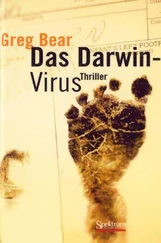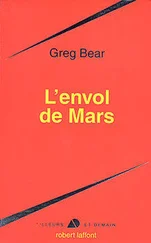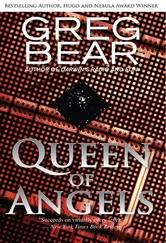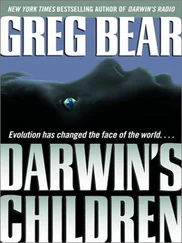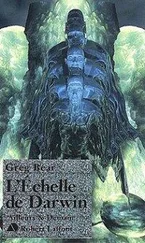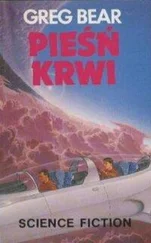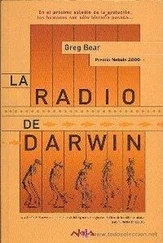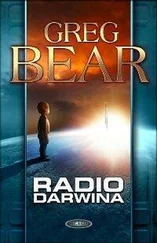“Don’t worry about original thinking,” Miller said. “Someone out there is always ahead of you, but they usually haven’t done the work. It’s someone who’s working all the time who will make the discovery. You do good work and write good papers, and this is a big jump.”
“We’re not sure it’s the big jump though,” Kaye said. “It may just be an anomaly.”
“I don’t want to push anybody into a Nobel prize,” Miller said, “but SHEVA isn’t really a disease-causing organism. Doesn’t make evolutionary sense for something to hide this long in the human genome, and then express just to cause a mild flu. SHEVA is really just a kind of mobile genetic element, isn’t it? A promoter?”
Kaye thought of the talk with Judith about the symptoms that SHEVA could cause.
Miller was perfectly willing to continue talking over her silence. “Everyone thinks that viruses, and in particular retro-viruses, could be evolutionary messengers or triggers, or just random goads,” Miller said. “Ever since it was found that some viruses carry snippets of genetic material from host to host. I just think there are a couple of questions you should ask yourselves, if you haven’t already. What does SHEVA trigger? Let’s say gradualism is dead. We get bursts of adaptive speciation whenever a niche opens up — new continents, a meteor clears out the old species. It happens fast, in less than ten thousand years; good old punctuated equilibrium. But there’s a real problem. Where is all this proposed evolutionary change stored?”
“An excellent question,” Kaye said.
Miller’s eyes sparkled. “You’ve been thinking about this?”
“Who hasn’t?” Kaye said. “I’ve been thinking about virus and retrovirus as contributors to genomic novelty. But it comes down to the same thing. So maybe there’s a master biological computer in each species, a processor of some sort that tots up possible beneficial mutations. It makes decisions about what, where, and when something will change…Makes guesses, if you will, based on success rates from past evolutionary experience.”
“What triggers a change?”
“We know that stress-related hormones can affect expression of genes. This evolutionary library of possible new forms…”
Miller grinned broadly. “Go on,” he prompted.
“Responds to stress-produced hormones,” Kaye continued. “If enough organisms are under stress, they exchange signals, reach a kind of quorum, and this triggers a genetic algorithm that compares sources of stress with a list of adaptations, evolutionary responses.”
“Evolution evolving,” Saul said. “The species with an adaptive computer can change more rapidly and more efficiently than hackneyed old species that don’t control and select their mutations, that rely on randomness.”
Miller nodded. “Good. Much more efficient than just allowing any old mutation to be expressed and probably destroy an individual or damage a population. Let’s say this adaptive genetic computer, this evolutionary processor, only allows certain kinds of mutations to be used. Individuals store the results of the processor’s work — which would, I assume, be…” Miller looked at Kaye for help, waggling his hand.
“Mutations that are grammatical,” she said, “physiological statements that don’t violate any important structural rules in an organism.”
Miller smiled beatifically, then held his knee and began rocking gently back and forth. His large square cranium glinted as it caught the reddish gleam of an overhead light. He was thoroughly enjoying himself.
“Where would the evolutionary information be stored — throughout the genome, holographically, in different parts in different individuals, or just in germ-line cells, or…elsewhere?”
“Tags stored in a set-aside section of the genome in each individual,” Kaye said, and then bit her tongue. Miller — and Saul, for that matter — regarded an idea as a kind of food that needed to be thoroughly shared and chewed over before it could be useful. Kaye preferred certainties before she spoke. She searched for an immediate example. “Like heat-shock response in bacteria, or single-generation climate adaptation in fruit flies.”
“But a human set-aside has to be huge. We’re so much more complex than fruit flies,” Miller said. “Have we found it already, but just don’t know what it is?”
Kaye touched Saul’s arm, urging caution. They had a reputation now for riding a certain wave, and even with an old-guard scientist like Miller, a gadfly with sufficient accomplishments under his belt for a dozen careers, she felt nervous giving away their most recent thinking. It could get around: Kaye Long says such and such…
“Nobody’s found it yet,” Kaye said.
“Oh?” Miller said, searching her face with a critical gaze. She felt like a deer frozen in headlights.
Miller shrugged. “Maybe not. My guess is, it’s expressed only in germ-line cells. Sex cells. Haploid to haploid. It doesn’t get expressed, it doesn’t start work unless there’s confirmation from other individuals. Pheromones. Eye contact, maybe.”
“We think otherwise,” Kaye said. “We think the set-aside will only carry instructions for the small alterations that lead to a new species. The rest of the details remain encoded in the genome, standard instructions for everything below that level…Probably working as well for chimpanzees as for us.”
Miller frowned, stopped rocking. “I have to let that run around in my head for a minute.” He glanced up at the dark ceiling. “Makes sense. Protect the design that you know works, at a minimum. So will these subtle changes carried in the set-aside express as units, do you think,” Miller said, “one change at a time?”
“We don’t know,” Saul said. He folded his napkin beside his plate and thumped it with his hand. “And that’s all we’re going to tell you, Drew.”
Miller smiled broadly. “Jay Niles has been talking with me. He thinks punctuated equilibrium is on a roll, and he thinks it’s a systems problem, a network problem. Selective neural network intelligence at work. I’ve never much trusted talk about neural networks. Just a way of clouding the issue, of not describing what you need to describe.” With complete lack of guile, Miller added, “I think I can help, if you want me to.”
“Thanks, Drew. We might call on you,” Kaye said, “but for right now, we’d like to have our own fun.”
Miller shrugged expressively, tipped his finger to his forehead, and walked back to the other end of the table, where he picked up another breadstick and began another conversation.
On the plane to La Guardia, Saul slumped in his seat. “Drew has no idea, no idea.”
Kaye looked up from the airplane copy of Threads.
“About what?” Kaye asked. “He seemed pretty on track to me.”
“If you or I or anybody in biology was to talk about any kind of intelligence behind evolution…”
“Oh,” Kaye said. She gave a delicate shudder. “The old spooky vitalism.”
“When Drew talks about intelligence or mind, he doesn’t mean conscious thought, of course.”
“No?” Kaye said, deliciously tired, full of pasta. She pushed the magazine into the pouch under the tray table and leaned her seat back. “What does he mean?”
“You’ve already thought about ecological networks.”
“Not my most original work,” Kaye said. “And what does it let us predict?”
“Maybe nothing,” Saul said. “But it orders my thinking in useful ways. Nodes or neurons in a network leading to neural net patterns, feeding back to the nodes the results of any network activity, leading to increased efficiencies for every node and for the network in particular.”
“That’s certainly clear enough,” Kaye said, making a sour face.
Читать дальше
Конец ознакомительного отрывка
Купить книгу

